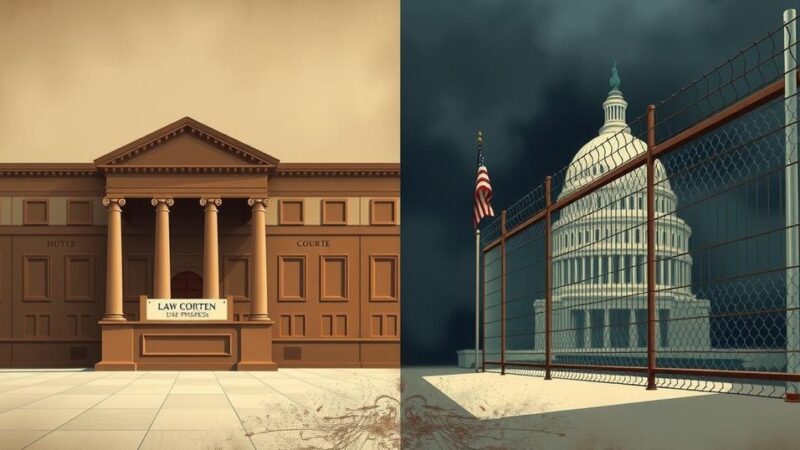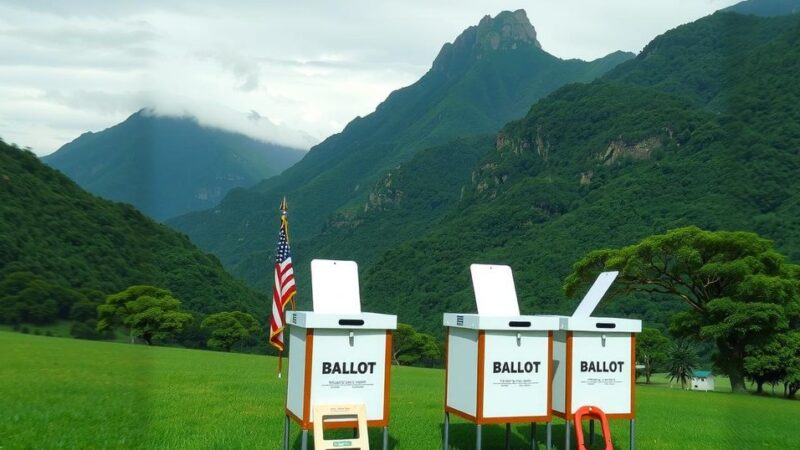Yamandú Orsi was inaugurated as Uruguay’s president on March 1, 2025, marking the return of the Broad Front after a conservative term. Orsi advocates for strengthening the social safety net while addressing economic stagnation. His administration faces challenges balancing radical leftist demands with economic development needs, particularly in reforming pensions. The business community is cautious as they await clarity on Orsi’s authority and policy direction.
On March 1, 2025, Yamandú Orsi, a charismatic former mayor and educator, was inaugurated as Uruguay’s new president, succeeding conservative leader Luis Lacalle Pou. Orsi’s election signifies the revival of the Broad Front, a coalition that unites moderates, communists, and trade unionists, after a five-year conservative administration. The inauguration ceremony saw widespread public support, as thousands gathered to witness his oath-taking in Montevideo, highlighting the people’s desire for a return to more progressive governance.
During his inaugural address, Orsi emphasized the importance of safeguarding democratic values in light of regional political polarization and disillusionment. He articulated a commitment to being adversaries in political discourse, yet never enemies, reflecting a call for unity amidst differing ideologies. This message of solidarity was echoed in a pre-inaugural dinner with fellow leftist leaders from the region, further strengthening alliances against common challenges.
Orsi, widely regarded as a candidate of nostalgia for the Broad Front’s earlier successes, faces significant challenges ahead. The previous coalition was credited with substantial economic growth and social reforms but left office amid concerns over rising inequality and crime under Lacalle Pou. As Orsi balances the expectations of radical leftist constituents with the need to foster economic growth, he seeks to ensure the livelihoods of Uruguay’s population, currently numbering around 3.5 million.
The nascent leader’s vision includes a commitment to enhancing job quality and income distribution, amidst a fractious political environment. Experts predict that the dynamics within Orsi’s coalition will greatly influence policy decisions, particularly regarding investor confidence in Uruguay’s economy. The business community remains cautious, waiting to discern the extent of Orsi’s authority versus that of his more radical supporters.
Reforming the pension system remains a contentious issue, particularly after a recent referendum rejected proposed changes to retirement ages and pension increases. Orsi acknowledges the necessity for dialogue and understanding diverse community perspectives to navigate these challenges. However, union pressures for a more lenient economic approach pose risks to Uruguay’s traditionally investor-friendly climate, which could affect the country’s future economic stability.
Yamandú Orsi’s presidency marks a significant shift in Uruguay’s political landscape as he leads the leftist Broad Front amid economic challenges. His commitment to democratic values and strategic dialogue aims to address pressing social concerns, but significant obstacles remain, particularly from within his coalition and the business community. The success of his administration will hinge on effectively balancing radical demands with the need for sustainable economic growth, shaping the nation’s future trajectory.
Original Source: apnews.com






